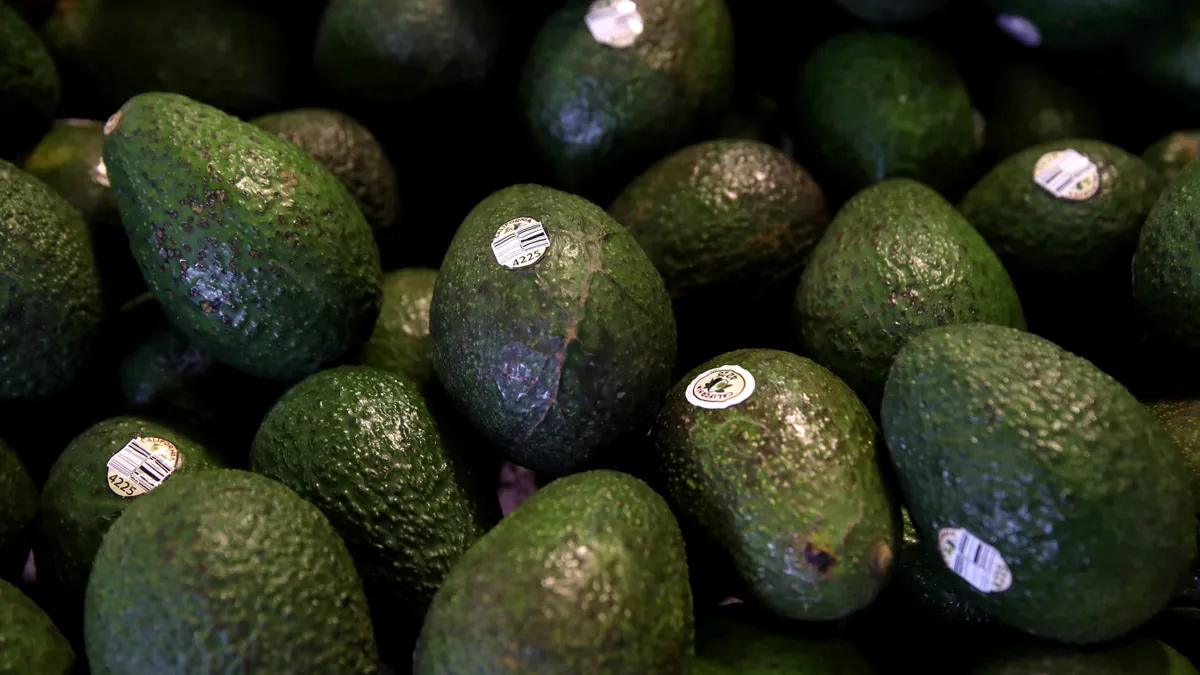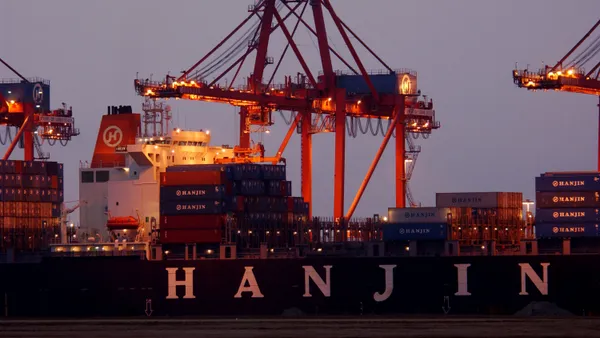Dive Brief:
- A historic drought in California dried up the avocado supply and pushed up prices last year, executives with fruit supplier Limoneira told analysts this month.
- Limoneira sold just 3,000 pounds of avocados in Q4, compared to the approximately 487,000 pounds it sold during the same time period last fiscal year. A severe lack of rainfall reduced "the overall size of the actual avocado fruit pieces" and pushed farmers to harvest the majority of the fruit in Q3, according to CFO Mark Palamountain.
- The avocado and citrus supplier expects a robust turnaround in 2022 after recent winter storms bolstered snowpack in the Sierra Nevada Mountains. "That's going to go a long way to really filling up our agricultural canals and giving us access to additional water," CEO Harold Edwards said.
Dive Insight:
California accounts for over 90% of avocado production in the U.S., and the state's driest year in nearly a century not only affected overall crop yields, but also the size of individual fruit.
Rain leaches salt from the soil and is essential for promoting avocado growth, according to a report from the University of California's Agriculture and Natural Resources division. In times of drought, producers have to use even more water to leach the salts themselves, further straining natural resources and raising input costs.
Issues with last year's harvest in California had some larger fruit suppliers sourcing more overseas. Avocado distributor Mission Produce said losses associated with the smaller California harvest were partially offset by record volumes coming out of suppliers in Peru.
"Our unique combination of utilizing third-party growers and leveraging our own farms in Peru for diversified source volume is particularly valuable in environments such as this," CEO Steve Barnard told analysts in December.
However, increased reliance on imported goods brings additional challenges, as port congestion delays shipments and puts perishable products at risk of spoilage. Mission's shipments from Peru were delayed by two to three weeks, and "a lot of it didn't make it," said Barnard.
Limoneira has so far avoided many of the impacts associated with port congestion, as production is based in California. Once the company begins importing more fruit from the southern hemisphere in mid-to-late summer, it will take more steps to find workarounds to shipping delays.
"We'll be very cautious about bringing fruit into the West Coast ports and probably err on the side of bringing more deliveries to the East Coast markets and using trucking to bring it West to avoid the congestion," Edwards said.













